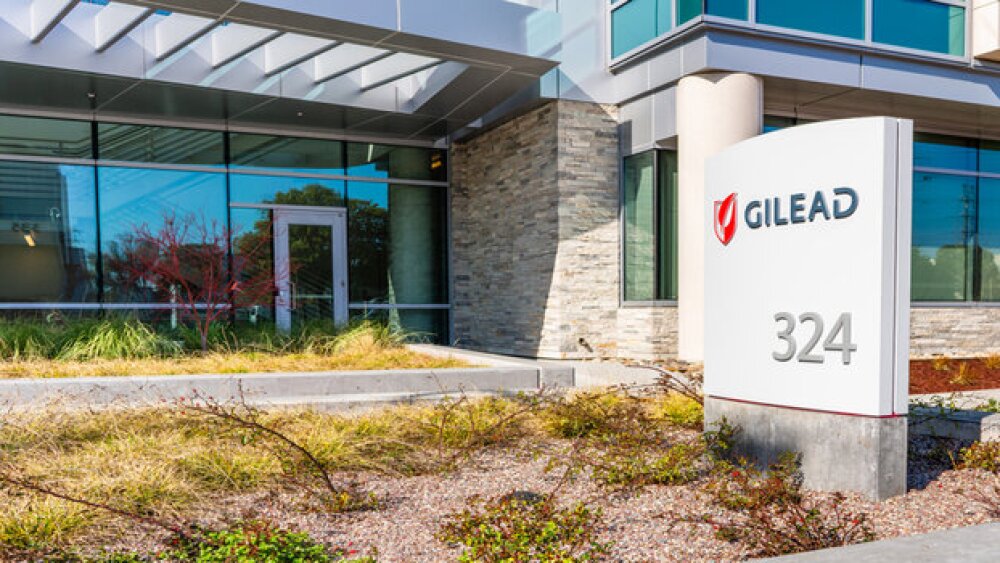Despite the lifting of the FDA’s partial clinical hold, Gilead will discontinue magrolimab’s development in higher-risk myelodysplastic syndromes after a Phase III study met the bar for futility.
Pictured: Corporate headquarters of Gilead in Silicon Valley/iStock, Sundry Photography
Gilead has discontinued the Phase III ENHANCE study of its investigational anti-CD47 antibody magrolimab for the treatment of patients with higher-risk myelodysplastic syndromes, the company announced Friday.
The decision to end the study was triggered by a planned analysis of its data, which satisfied the criteria for futility, according to Gilead. Magrolimab’s safety profile in ENHANCE is consistent with what had been documented in prior studies, and the observed side effects are typical of this patient population, according to Gilead’s press release.
The company will submit these data for presentation at an upcoming medical congress.
Merdad Parsey, Gilead’s chief medical officer, called ENHANCE’s data “disappointing” and saw it as evidence of how difficult it is to address higher-risk myelodysplastic syndromes (MDS), for which “no new class of treatments have been approved in 20 years.”
Following the study discontinuation, Gilead is recommending that all MDS patients discontinue treatment with magrolimab. The company is also working out the next steps for patients who had been enrolled in ENHANCE.
Beyond MDS, however, Gilead will continue the development of magrolimab in acute myeloid leukemia (AML), for which it is running the ENHANCE-2 study in patients with TP53 mutations and the ENHANCE-3 trial to assess the antibody as a first-line treatment option.
Magrolimab is a monoclonal antibody with potentially first-in-class potential. It binds to CD47, a surface protein commonly overexpressed in cancer cells, which use it to hide from the body’s immune system. By blocking CD47, magrolimab restores this anti-cancer activity to enable macrophages and other phagocytic cells to target and eliminate cancer cells.
In January 2022, the FDA slapped a partial clinical hold on all trials evaluating magrolimab in combination with Bristol Myers Squibb’s azacytidine—marketed under the brand names Vidaza and Onureg—preventing the enrollment of new participants into these studies. Patients who had already been enrolled were allowed to continue treatment under tight monitoring by Gilead.
The initial hold was applied only to trials evaluating the drug combination. The company revealed a week later two more magrolimab studies, which did not pair the antibody with azacytidine. The regulatory pauses were triggered by a higher-than-expected prevalence of serious adverse events.
The studies affected by the partial hold were in diffuse large B-cell lymphoma, multiple myeloma, AML and MDS.
In April 2022, following a comprehensive review of safety data, the FDA lifted all clinical holds on MDS and AML studies of magrolimab.
Tristan Manalac is an independent science writer based in metro Manila, Philippines. He can be reached at tristan@tristanmanalac.com or tristan.manalac@biospace.com.






